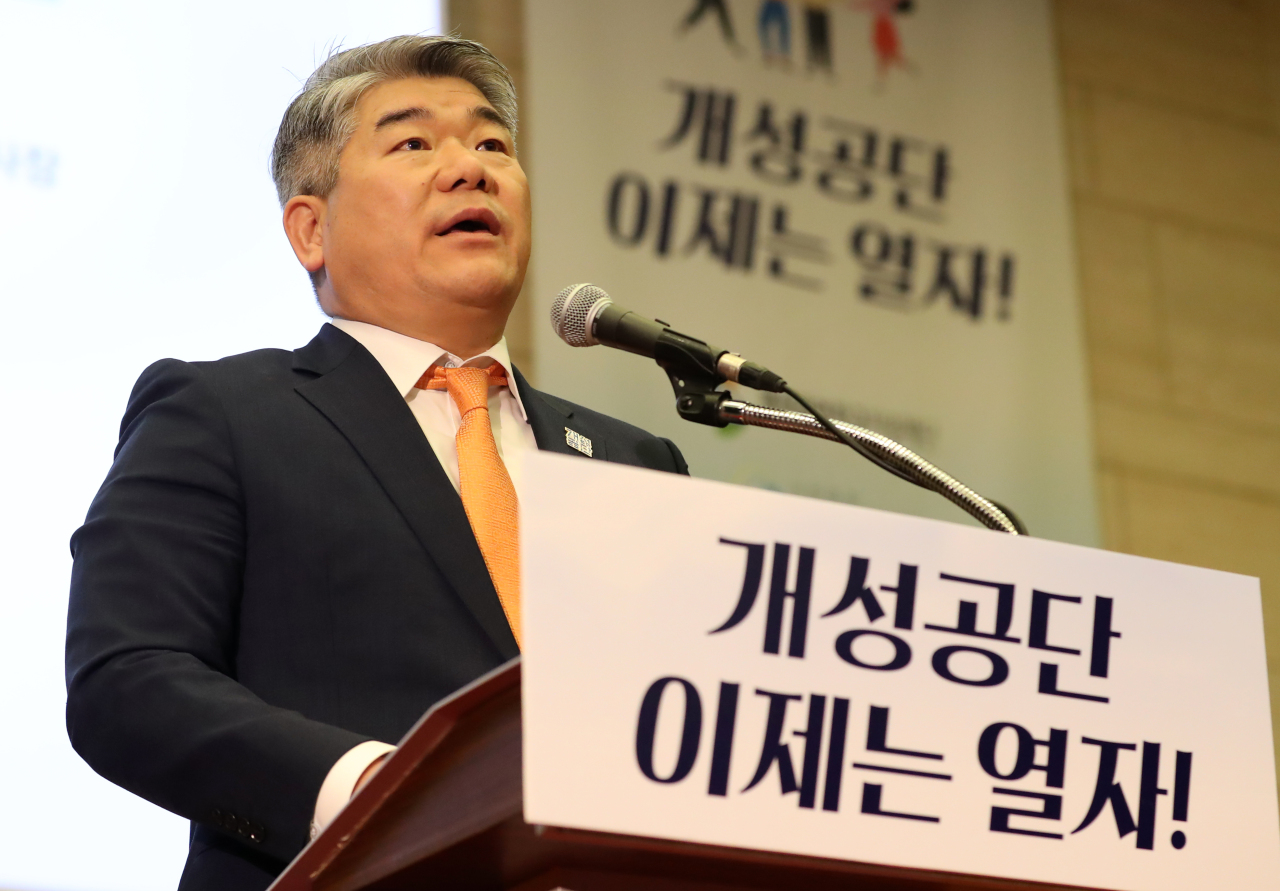[Herald Interview] ‘Let’s use Kaesong plants for mask production’
Advocate of shuttered inter-Korean factories urges reopening
By Ahn Sung-miPublished : March 11, 2020 - 15:20

As South Korea grapples with a shortage of face masks during the prolonged novel coronavirus outbreak, a rather unconventional idea is being floated: using the shuttered Kaesong industrial park to produce masks for both Koreas.
The joint inter-Korean complex in North Korea’s border city of Kaesong, North Hwanghae Province, has the capacity to manufacture protective masks and reusable cotton masks to meet the needs of South Korea’s population of 51 million, according to Kim Jin-hyang, chairman of the Kaesong Industrial District Foundation.
“The skilled North Korean workers, infrastructure and facilities are still in place there,” Kim told The Korea Herald on Tuesday. “If the Kaesong complex reopens, masks can be produced quickly. It can solve the shortage problems in Korea, and also other places around the world as coronavirus is becoming a global issue.”
According to Kim, among former tenants of the factory complex is mask manufacturer Evergreen, which had a production capacity of around 6 million masks a month. In addition, there were 73 textiles and sewing manufacturers that could use their now-abandoned facilities to produce cotton masks. There were also companies that could produce hazmat suits, he added.
Once a symbol of inter-Korean economic cooperation, the complex was closed down by South Korean government in 2016 in retaliation for the North’s nuclear tests and missile launches.
“Not much of the garment industry is left in South Korea,” Kim said. “Companies have moved overseas and some to Kaesong, around 10-20 years ago, as they lost competitiveness here.”
North Korea has skilled textile workers, which is hard to find here, he added.
“With the amount of masks South Korea produces at the moment, we cannot meet the demand fast enough on the rapid spread of COVID-19,” Kim continued. “But mass production at Kaesong complex could start relatively quickly, with workers in North Korea waiting, if only the authorities approve.”
Resumption of the joint factory will bring about new momentum in the stalled inter-Korean relations, he stressed.
His idea has been received positively by some politicians as well as members of the public.
“At a time when the government and mask manufacturers are working hard toward expanding the production, it would be helpful to use the Kaesong complex,” said Sul Hoon of the ruling Democratic Party. “It will be more effective to manufacture masks using the existing facilities than setting up a new facility and increase output.”
Yoon So-ha, floor leader of the minor Justice Party, echoed the view. “Through humanitarian response to COVID-19, let’s open the Kaesong complex and actively solve inter-Korean relations.”
A petition for Kaesong masks had garnered more than 10,000 signatures on the website of South Korea’s presidential office as of Wednesday.
However, for the idea to be realized, there are hurdles to clear.
The United Nations sanctions on North Korea ban the establishment and operation of joint ventures, foreign investments and money transfers, including “bulk cash,” and the export of textiles -- which comprises the main business of the complex. In order to reopen Kaesong industrial park, Seoul needs to obtain sanction exemptions from the UN Security Council.
“It’s not impossible,” Kim said.
“As it is a global emergency with COVID-19, the UN could consider exempting sanctions, partially for textile firms to operate inside the complex. The question is whether Seoul is willing to take action and negotiate with Pyongyang and Washington to make this work.”
Seoul’s Unification Ministry appears reluctant to make a move.
“The government maintains the position that it is necessary to resume the Kaesong industrial park, but we have to examine realistic problems that come with reopening the ceased complex,” said Yoh Sang-key, the ministry’s spokesperson.
“In order to reopen the facilities at the complex that have been suspended, we need time to inspect the facilities, which could take several months. Also there is an issue of bringing all the materials, such as filters, into Kaesong.”
Additionally, there could be worries over coronavirus, as people from the two sides will come into close contact.
By Ahn Sung-mi (sahn@heraldcorp.com)







![[KH Explains] How should Korea adjust its trade defenses against Chinese EVs?](http://res.heraldm.com/phpwas/restmb_idxmake.php?idx=644&simg=/content/image/2024/04/15/20240415050562_0.jpg&u=20240415144419)











![[Today’s K-pop] Stray Kids to return soon: report](http://res.heraldm.com/phpwas/restmb_idxmake.php?idx=642&simg=/content/image/2024/04/16/20240416050713_0.jpg&u=)